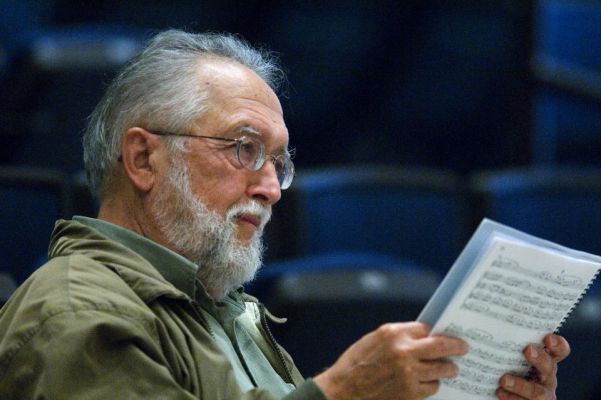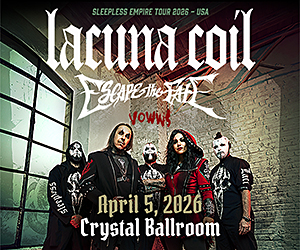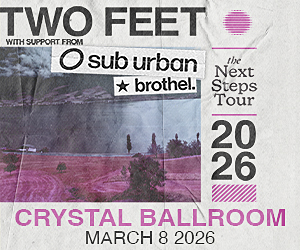Home > News
11/23/2022
Tomas Svoboda, dead at 82: Concert honoring him plus an OMN interview from the archives
Beloved, world-famous composer Tomas Svoboda passed away last week. James Bash interviewed him for OMN in October of 2009.
Composer/pianist and long-time Portlander Tomas Svoboda passed away on November 17, 2022. He had a massive stroke in 2012. According to his Wikipedia page, "His music is performed worldwide and recordings of more than 50 works have now been released. Svoboda's Piano Trios CD recording received a 2001 "Critics Choice Award" from the American Record Guide and his Marimba Concerto received recognition in a 2003 Grammy Award nomination for the Oregon Symphony."
45th Parallel Universe posted this about the death of composer Tomas Svoboda:
Tomas Svoboda, one of our nation’s finest composers, lives in Portland and has been writing more and more music than ever before. That’s not a bad feat for a fellow who left Czechoslovakia and found his way in the US as a professor of music. He retired after teaching music for 30 years at Portland State University. I really enjoyed his big symphonic work, “Vortex,” which the Oregon Symphony premiered in March, and I thought that it was high-time to talk to him about his work.
JB: What have you been working on lately?
Svoboda: I’ve just completed 30 short pieces for harp. I wrote them for Jennifer Ironsides, the principal harpist of the Oregon Symphony.
JB: Wow! How long did it take you to write these?
Svoboda: About two months. That’s because she had given me about two months lead time before she got married. So, it’s a special gift.
I don’t play the harp, but since it’s a percussive instrument so it’s related to the piano, which is my instrument.
A few things will be changed in the score for the harp, because the relationship between the two hands is different for a harpist than for a pianist. So maybe some of the pitches will be shifted from the top staff to the bottom and vice versa. Some of the pieces might be easier for a harpist because on a piano your hands have to cross over each other.
JB: You started writing music when you were very young. How did you get started?
Svoboda: I was very fortunate that my father was a musician. He was a brilliant pianist, excellent sight reader. He also played the timpani for the Prague Symphony Orchestra. So when I was 10 years old I was turning pages for him and he was playing Chopin and other great music. Being in Prague, which is a very musical city, my father had a lot of musical friends. So I was in the atmosphere of musical instruments. What triggered my willingness to write music, I was seven years old and I’ll never forget that day. I was a little bit ill and my dad was leaving for a job and my dad had played Beethoven’s Coriolan Overture on the record player. I’ve always loved that music, because it triggers some colors from me like white and violet. After he left, I got up from bed and took some of my father’s music paper (he composed things here and there) and tried to write some notes. They looked like potatoes. It was really kind of funny.
It was my eagerness to express myself musically. It was in A minor and three measures long and far, far from anything decent. But from that moment my father encouraged me to write something every day. So, I became obsessed. I was dreaming of music. I loved to look at key signatures. I dreamt of pieces with 50 flats and 30 sharps. I was totally surrounded by the beauty of notation. We had lots of music scores at home. We had the scores of Beethoven’s symphonies. So I was able to read them by age 9. My dad would play the record and I followed with the score.
JB: Do you remember your first real composition?
Svoboda: Yes, my first composition was for piano, and its was called “A Bird,” and it’s been published. I wrote it when I was nine years old. Piano has always been my instrument, but I did learn organ when I was at the Prague Conservatory. They had these great organ practice rooms in the basement-catacombs of the conservatory. So, I’ve written some organ pieces as well.
My organ studies came in handy when I came to the US. My parents and I escaped the communist regime in Czechoslovakia in 1964, and a couple of years later I started my studies for a masters at USC. I became the organist at the United Methodist Church in Maywood and that gave me some spending money. So organ is a very close friend.
At USC I studied with Ingolf Dahl and Halsey Stevens. I did get an invitation to write some film music, but when I showed up at the film studio office, a fellow gave me a script and asked me what kind of music I would create for it, and then he took a phone call. The scene he gave me featured an intense dialog between a woman and a man. After he finished his phone call, I told him that those two pages didn’t need any music. He told me thank you, we may call you back, but of course he never did. So that was my Hollywood interview, and I laugh about it. Thank God it happened that way, because being a composer for movies is a different ballgame. That’s very stressful work, and I think that I would’ve regretted it if I would’ve gone in that direction with my career.
When you get into film music writing, you can lose your ability to write for the concert hall. I have some friends who had done film music and they have told me that it’s very difficult to write music without film.
JB: Did you know that you would make a living as a college professor when you came to the US?
Svoboda: When I came here I was so excited to be free of that communist regime. That was a big victory. I did discuss what direction I would take with my parents, because we escaped from Czechoslovakia as a family. It looked like the best route was to become either a teacher or a pianist with the Los Angeles Philharmonic. But I realized that practicing piano and listening to the music of other composers would make it difficult for me to concentrate on composing my own stuff. So, I decided that teaching would be better. Creating handouts for students, meant that I had to compose something; so that would be better for me.
But my parents and I didn’t like Los Angeles all that much. So after I graduated from USC, I sent out 200 letters for applying for teaching positions. That was in 1970. I got two interviews: one was in Hawaii and the other was in Portland at Portland State. We thought that it would be better to stay on the mainland; so I came to PSU as a visiting professor.
During my first year in Portland, we were the house sitters for the poet Bill Stafford's place in Lake Oswego. Things went well, and I ended up teaching at PSU for 30 years. Since retiring I’ve had more time to devote to recording my music. During my teaching years I was bushed. I was teaching five courses. During the last three years before I retired, I had 52 students for keyboard harmony, 40 students for orchestration, almost 30 students for composition, everybody wanted to study with me. They had to bring extra chairs into the classroom. I was bushed when I went home.
JB: I noticed on your web site that your music is getting played on the radio a lot.
Svoboda: Recently I got the news from BMI (Broadcast Music, Inc.) that I’m among the most broadcast composers in the US. My average right now is three broadcasts a week.
JB: Are you becoming extremely wealthy from all this?
Svoboda: [Laughs] No, but I get some royalties. I got a check for 60 bucks! Really, it just makes me happy that my music is getting air time. I’ve got 20 recordings out there.
JB: Do you have a favorite recording?
Svoboda: Yes, the string quartets with Martinu Quartet. They are going to play my newest string quartet (No. 10) in February at a festival in Czech.
I have a new electronics piece called “Migrating Message” which involves xylophone and tape. It’ll be performed at the Blackfish Gallery in February with a special art installation. To compose the music, I used the Finale program and a Kurzweil 250 Synthesizer.
[audio:http://oregonmusicnews.com/audio/Svoboda_electronics.mp3]
JB: How do you write music?
Svoboda: I sit and do scoring, then check voices on the piano, and then use the computer.
I’ve developed a system in which before I do the first measure, the piece is composed in my head. I know the direction of the music. But this technique needed some training. I changed my style of composing when I started teaching at PSU, because I no longer had time to compose measure by measure and go by instinct. I started doing this new technique while standing in a Trimet bus on my way to PSU. The bus was too crowded to sit down. So I began imaging a piece for string quartet. I started to compose - not note by note - but by a sense of direction. It was really strange and new. I had the emotion of the piece in my head. So I finish the piece first in my head before I bring it to paper.
Sometimes it’s sort of scary, because I get this lighting moments. One time, I was driving with my wife Jana to the coast and I was slowing and then saw a butterfly. That one thing triggered me to envision my 5th Symphony, which I finished in my mind in a few seconds. It was like a lightening bolt. That doesn’t mean that composing it is a smooth process. Composition can be a difficult labor.
JB: What’s up next for you?
Svoboda: I’ll be travelling to Prague very soon for a tribute concert. Some of my works for strings will be performed by the Prague Chamber Orchestra under baton of Jaroslav Vodnansky. They are celebrating my 70th birthday. It’ll be fun to see my friends there again.
JB: Congratulations! And I hope that we get to talk again soon.
Svoboda: It’s been a pleasure.









Michael Golden
I was a student of Prof. Svoboda in the mid-1970s. At the time, I was thinking of majoring in urban planning, but took his music theory course to "get through" my arts requirement. His passion for music, needless to say, completely inspired and changed the direction of my life. I am forever in his debt, and also wish, if belatedly, to share my condolences with his family and all those who miss him.